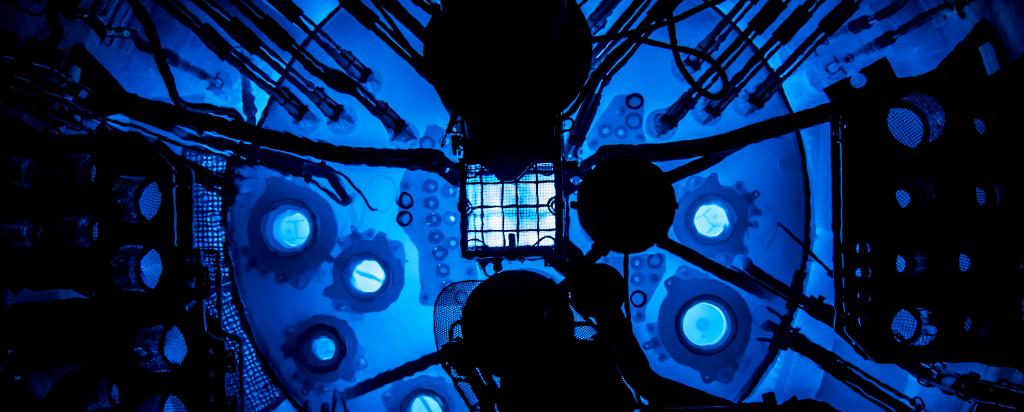
Role at ANSTO
Dr Helen Maynard-Casely is an instrument scientist for the WOMBAT high-intensity powder diffractometer instrument. She assists and collaborates with visiting scientists, works with the sample environment team in commissioning new equipment for WOMBAT and is co-responsible for improving and expanding the capabilities of the instrument.
Her own research expertise is in investigating the materials relevant to the surface of the icy moons, such as Jupiter’s Europa and Saturn’s Titan. Her journey to exploring these icy moons began with her degree in Planetary Sciences from University College London, and was followed by her PhD in high-pressure physics at the University of Edinburgh. Moving to Australia, first to undertake a post-doctoral position at the Powder-Diffraction beamline at the Australian Synchrotron, where she developed her program of research on planetary ices - she then moved to the Australian Centre for Neutron Scattering in 2013 to take up her current role.
Expertise
Diffraction, high-pressure sample environments, crystal structure solution, planetary science, science communication.
Qualifications & Achievements
- Women in Physics lectureship, award from Australian Institute of Physics (2019)
- ANSTO Outreach and Education prize (2018)
- Post-Doctoral positions held at Centre for Science at Extreme Conditions, University of Edinburgh (2009-2010) and Australian Synchrotron (2011-2013).
- PhD in High Pressure Physics from University of Edinburgh (2009)
- Msci in Planetary Science from University College London (2005)
- Holds the Guinness World record for the longest glow-in-the-dark necklace (326.44 m)
Committees, Affiliations & memberships
- Editorial Board, Crystallography Reviews
- Councillor, Society of Crystallographers in Australia and New Zealand
- Member, IUCr Gender Equity and Diversity Committee
- Local organising committee member for the International Union of Crystallography congress 2023
- Member of the National committee of crystallography
